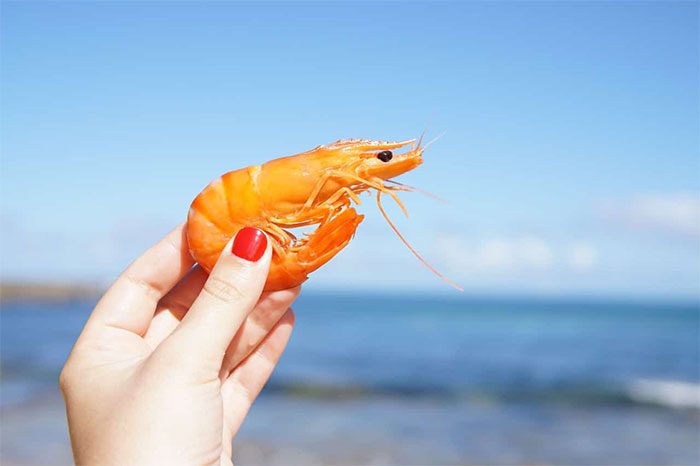Recently, American scientists published a research study on creating concrete from shrimp shells that is not only extremely strong but also contributes to environmental protection and cost savings.

Concrete strength can be enhanced by adding shrimp shells.
The research conducted by American scientists offers promising prospects for reducing seafood waste, contributing to environmental protection. Additionally, using shrimp shells in concrete can save a significant amount of raw materials used in production.
In particular, concrete made from shrimp shells is very durable because shrimp shells primarily consist of chitin, a type of polymer that forms the exoskeletons of crustaceans, and calcium carbonate—substances that contribute to high strength and durability.
Therefore, scientists at Washington State University have been able to enhance the strength of concrete by adding shrimp shells. They incorporated extremely small chitin particles into the mixture, which are thousands of times smaller than a human hair. With chitin, the hardened solution becomes 40% stronger compared to the standard mixture. Moreover, its curing time has increased by over an hour, making it easier to transport over long distances and capable of withstanding high temperatures in hot weather.
According to the scientists, the chitin additive from shrimp shells will nearly double the lifespan of concrete products. Additionally, this material reduces the demand for new concrete production, helping to decrease carbon emissions.



















































